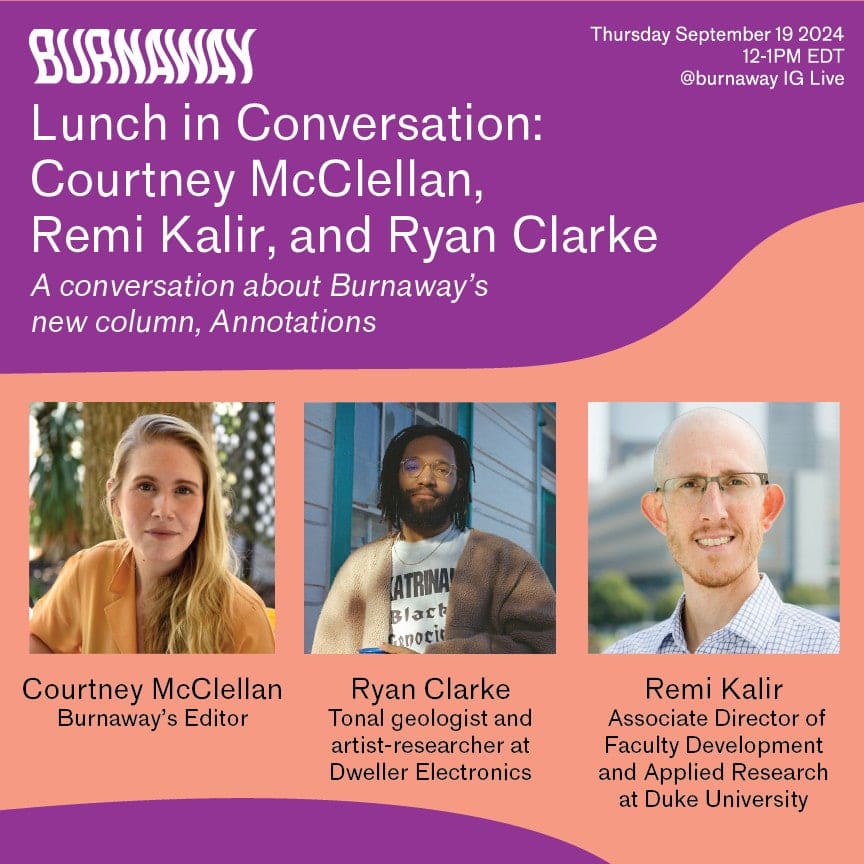
Thursday, September 19, 2024 12-1PM EDT
Instagram Live on @burnaway
The second in Burnaway’s editorial Lunchtime Conversations series, Courtney McClellan will be speaking with Remi Kalir and Ryan Clarke about Burnaway’s new Annotations column and the first contribution to the column from Clarke himself.
This virtual program will take place on Instagram Live on Thursday September 19 at 12PM EDT – join on Instagram Live. The Lunchtime Conversation series will continue throughout 2024 and into next year with our editorial team.
About Annotations
Stated simply, annotations are notes added to a text or image. Visually, they take many forms: shorthand, strikethroughs, highlighting. Conceptually, annotations hold paradoxical qualities. They reject the idea that reading and writing are solitary acts. Inherently social, annotations invite conversation and collaboration, but also disagreement and debate. Found bits of text or small doodles at the corner of a page can be adornment and graffiti, gentle or abrasive. Annotations are data that adopt and defy expertise. They are intertextual and fight singularity, linearity. Imperfect and profound, annotations are gestures of care and critique. Grappling with history, power, and the past (including past versions of ourselves), they make plans and wait patiently for a future reader. Annotations are time travel.
The column will bridge visual, written, and audio/video output in order to initiate dialogue. Some responses will be made by individuals, others by groups of people. Contributions might employ a printed text as a substrate, appear like comments in a Google Doc, or look like handwritten notes on xeroxed documents. Annotations can take so many forms, we aren’t quite sure what they will be—which is exactly why we want to share them. Examining the iterative nature of writing and publishing, the column will also provide a means to reveal and reflect upon the act of editing itself.
About Remi
Remi Kalir is a scholar and practitioner of annotation. He is the author of two books published by MIT Press: “Re/Marks on Power: How Annotation Inscribes History, Literacy, and Justice” (2025) and “Annotation” (2021). Remi is a former professor who now serves as Associate Director of Faculty Development and Applied Research at Duke University.
About Ryan
A tonal geologist from the Northern Gulf Coast, Ryan Christopher Clarke notices the passage of time as both a trained sedimentologist and artist-researcher as co-editor at dweller electronics, a group dedicated towards providing Black counterpoint within an otherwise eurologically dominant music industry. His individual works investigates local cultural objects and their metaphysical communications with its proximal geological landscape.
